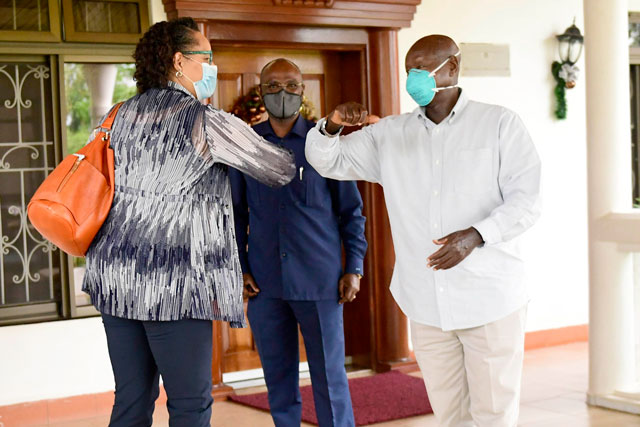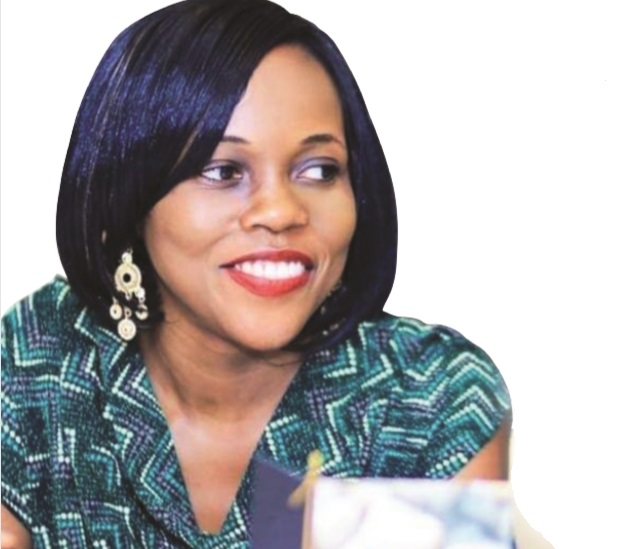
Kampala, Uganda | RONALD MUSOKE | Natalie E. Brown, the American Ambassador to Uganda has said the US has cancelled its Diplomatic observer mission for Uganda’s upcoming election scheduled for Jan. 14.
“It is with profound disappointment that I announce the U.S. Mission in Uganda’s decision to cancel our diplomatic observation of Uganda’s January 14 elections due to the decision by the Electoral Commission of Uganda to deny more than 75% of the U.S. election observer accreditations requested,” Brown said in a statement seen by The Independent.
“With only 15 accreditations approved, it is not possible for the United States to meaningfully observe the conduct of Uganda’s elections at polling sites across the country.” There are 34,684 polling stations scattered around the country according to statistics from the Electoral Commission.
The ambassador noted that although the U.S. Mission had complied with all Electoral Commission accreditation requirements, as it had in previous elections in Uganda, the vast majority of the embassy’s requests for 2021 were not approved.
Brown said that despite multiple requests, the Electoral Commission provided no explanation for its decision, which it communicated mere days before the elections. The purpose of a diplomatic observation of elections, Brown said, is to demonstrate our interest in a free, fair, peaceful, and inclusive electoral process.
“Diplomatic observers are not participants or advisors in the electoral process. Rather, they informally observe the conduct of elections, following strict standards of impartiality, non-interference, and compliance with local laws,” she said.
The US decision comes in the wake of several complaints from both local and international election observers who say they have not received any significant explanation from the EC as to why they are not getting accreditation at all or why in some instances, the number of observers have considerably been reduced.
Unlike this election, the Ugandan government has in the past supported the U.S’ observer efforts. In the 2016 elections, for instance, the U.S. Mission dispatched 88 diplomatic election observers.
Brown explained that the United States has not taken any side in Uganda’s upcoming elections—just like in the previous election cycles. “We support a free, fair, peaceful, and inclusive electoral process,” she said.
She also noted that the US is concerned by reports that the Electoral Commission has denied accreditation requests from members of other diplomatic missions and large numbers of Ugandan observers.
Several civil society organizations planned to observe the elections, but many have not heard back from the Electoral Commission on their accreditation applications.
Among those civil society organizations which already had organizational accreditation, the vast majority of their individual observers have not yet – hours to the elections – received accreditation badges.

Perry Aritua, the executive director of Women’s Democracy Uganda separately told The Independent that in the previous elections, it was relatively easy for local electoral observers to get accreditation for the polls.
This time, she said, the EC only provided her organization and seven other partners “general accreditation.” Many of her staff have not received tags to enable them access polling stations and the national tally centre.
Even when the local civil society organizations have written to the EC seeking an explanation, Aritua said, the EC boss Simon Byabakama, has not written back to them to explain why they are not getting accreditation this time.
Charity Ahimbisibwe, the executive director of the Coalition for Electoral Democracy in Uganda (CCEDU) told The Independent that although the coalition she heads had sent in 1800 individual electoral observers and 972 civil society organizations, the Electoral Commission had only approved four local individual observers and only four from the 972 civil society organizations affiliated to CCEDU. By Jan.12, CCEDU was yet to hear from the Electoral Commission on the pending accreditation process.
“There is no clear answer provided on why the numbers of election observers have been cut,” she told The Independent on Jan.13. Ahimbisibwe referred to the accreditation process as unfortunate.
“Here is a situation where individual citizens have expressed interest to observe the transparency of the electoral process and are using their own resources but their accreditation has not been accepted. What then does that say about the electoral process?” Ahimbisibwe said.
Efforts to reach Paul Bukenya, the spokesperson of the Electoral Commission, were fruitless as he could not pick his phone calls.
Brown explained that without robust participation of observers, particularly Ugandan observers who are answerable to their fellow citizens, Uganda’s elections will lack the accountability, transparency and confidence that observer missions provide.
“Uganda will also miss the opportunity to benefit from observers’ insights to improve and inform future elections,” she said.
A day earlier, on Jan.12, Josep Borell Fontelles, the high commissioner of the EU for foreign affairs described Uganda’s electoral process as “already highly tarnished” by the excessive use of force by law enforcement and security agencies.
Borell said in a statement that the pre-electoral violence and numerous difficulties faced by several opposition presidential candidates, civil society organizations, human rights defenders, electoral experts as well as journalists.
At this crucial time, the EU expects transparent, inclusive and credible elections, as well as a level playing field that allows all Ugandans to exercise their democratic rights as candidates and as citizens, without fear of intimidation or violence,” the envoy’s statement says.
Borell also noted the crucial work of human rights defenders, journalists and civil society organizations should be supported to ensure accountability and transparency.
The EU observers who were deployed across the country during the general elections in 2006, 2011 and 2016 will not observe these elections. The EU’s offer to deploy a small team of electoral experts was not taken up.
The role of local observers will be even more important than before,” noted the statement. The EU reiterates that shared values of democracy, respect for human rights and rule of law will continue underpinning EU relations with Uganda in 2021 and beyond.
In November, last year, the European Union also said it would not deploy an observer mission for Uganda’s presidential election following complaints that advice from previous observers to make polls fair went unheeded.
Attilio Pacifici, the EU ambassador and head of delegation to Uganda said in taking the decision not to send observers to Uganda, the EU considered whether Uganda had “made progress on recommendations provided by previous EU electoral missions.” The EU typically sends the largest team of any similar blocs—a total of 94 monitors were sent at the last poll—and they have stayed in the country sometimes for up to three months.
According to an EU report published in 2018, none of the 30 recommendations made by the observer mission sent to monitor the 2016 general elections was implemented. The recommendations included reforms to make the EC more independent, elimination of excessive use of force by the armed forces and ensuring transparency during the tallying process.
 The Independent Uganda: You get the Truth we Pay the Price
The Independent Uganda: You get the Truth we Pay the Price



